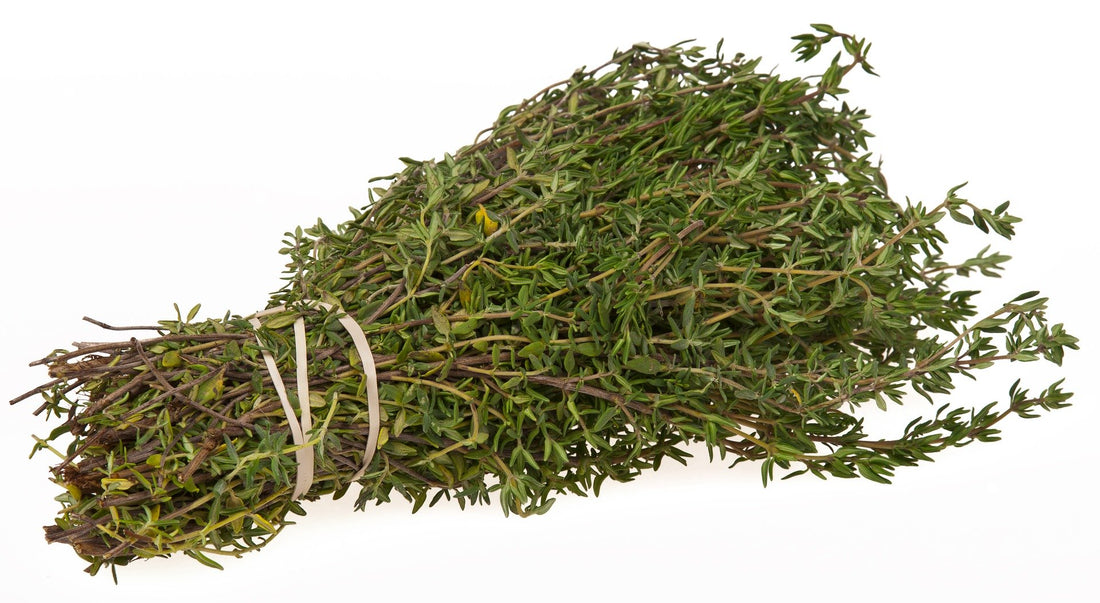Thyme oil has been used throughout history - by the Ancient Greeks, Egyptians, Romans, and throughout the Middle ages, up until the advent of antibiotics. Now with the rise of anti-bacterial resistance and new viruses, properties of herbs like thyme are being investigated as new-old sources of medical therapies.
Greeks: The name Thyme is derived from the Greek word 'thymos' which means 'perfume'. Hippocrates, who lived around 460 BCE to 370 BCE and is known today as “the father of Western medicine,” recommended thyme for respiratory diseases and conditions. People grew thyme in gardens and gathered it in the countryside. The ancient Greeks used Thyme in their baths and burnt it as incense in their temples, believing it was a source of courage.
Ancient Egyptians used thyme for embalming
Romans The great Roman writer Pliny (c23-79 AD) who was an authority on all things scientific in Europe wrote, ‘when burnt, it puts to flight all venomous creatures’. He also recommended it as a treatment for epilepsy. The spread of thyme throughout Europe was thought to be due to the Romans, as they used it to purify their rooms and to "give an aromatic flavour to cheese and liqueurs". They are also supposedly offered it as a cure people for who were melancholic or shy. The Roman army introduced thyme to the British Isles when they conquered the land.
Britain in the Middle Ages, thyme was used throughout Europe to help fight the Black Plague. It was placed beneath pillows to help sleep and ward off nightmares. Women often gave Warriors gifts that included thyme leaves, as it was believed to bring courage to the bearer. Ladies commonly embroidered an emblem of a bee hovering over a sprig of thyme on scarves they would give to their knights. The thyme on this emblem symbolised activity, bravery and energy.
During this period, thyme was used as incense and placed on coffins during funerals, as it was supposed to assure passage into the next life.
Scottish highlanders drank a tea made of wild thyme to gain courage before battle and to also ward off nightmares.
When the Black Death took hold of Europe in the 1340s, people would wear posies of thyme for protection.
White thyme essential oil is normally used since it is less irritant than red thyme. However, used correctly and in moderation, it blends well with bergamot, grapefruit, lemon, lavender, orange, marjoram sweet, melissa, pine, rosemary, sage and tea tree.
During the First World War, thyme essential oil was used in hospitals to sanitize the wards and operating theatres, and it is still used in the pharmaceutical industry for the manufacture of cough medicines, mouthwashes and toothpaste. Clinical trials have shown that thyme oil is highly effective against MRSA (Methicillin-resistant Staphylococcus aureus).

